What Is Facial Hygiene?
 I am glad you asked, Facial Hygiene is, according to Wikipedia, the range of practices that support skin integrity, enhance its appearance and relieve skin conditions. They can include nutrition, avoidance of excessive sun exposure and appropriate use of emollients. Practices that enhance appearance include the use of cosmetics, botulinum, exfoliation, fillers, laser resurfacing, microdermabrasion, peels, retinol therapy. Skin care is a routine daily procedure in many settings, such as skin that is either too dry or too moist, and prevention of dermatitis and prevention of skin injuries.
I am glad you asked, Facial Hygiene is, according to Wikipedia, the range of practices that support skin integrity, enhance its appearance and relieve skin conditions. They can include nutrition, avoidance of excessive sun exposure and appropriate use of emollients. Practices that enhance appearance include the use of cosmetics, botulinum, exfoliation, fillers, laser resurfacing, microdermabrasion, peels, retinol therapy. Skin care is a routine daily procedure in many settings, such as skin that is either too dry or too moist, and prevention of dermatitis and prevention of skin injuries.
Skin care is a part of the treatment of wound healing, radiation therapy and some medications.
Skin Care Background
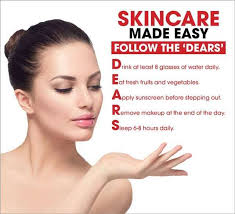
Skin care is at the interface of cosmetics, and dermatology, a traditional medical discipline; there is some overlap with each of these topics.
The Federal Food, Drug, and Cosmetic Act defines cosmetics as products intended to cleanse or beautify (for instance, shampoos and lipstick). A separate category exists for medications, which are intended to diagnose, cure, mitigate, treat, or prevent disease, or to affect the structure or function of the body (for instance, sunscreens and acne creams), although some products, such as moisturizing sunscreens and anti-dandruff shampoos, are regulated within both categories.
Skin care differs from dermatology, as traditionally practiced, by its additional but less medical scope and by its inclusion of non-physician professionals, such as estheticians and wound care nursing staff. Skin care includes modifications of individual behavior and of environmental and working conditions. Nevertheless, dermatology has co-opted some aspects of skin care, particularly in the U.S., and to a significantly lesser extent elsewhere, such as the U.K.
Sun Block For Skin Protection
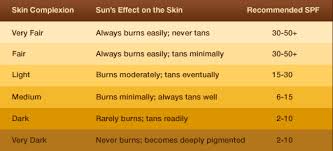 Sun protection is an important aspect of skin care. Though the sun is beneficial in order for the human body to get its daily dose of vitamin D, unprotected excessive sunlight can cause extreme damage to the skin. Ultraviolet (UVA and UVB) radiation in the sun’s rays can cause sunburn in varying degrees, early ageing and increased risk of skin cancer. UV exposure can cause patches of uneven skin tone and dry out the skin.
Sun protection is an important aspect of skin care. Though the sun is beneficial in order for the human body to get its daily dose of vitamin D, unprotected excessive sunlight can cause extreme damage to the skin. Ultraviolet (UVA and UVB) radiation in the sun’s rays can cause sunburn in varying degrees, early ageing and increased risk of skin cancer. UV exposure can cause patches of uneven skin tone and dry out the skin.
This can reduce the skin’s elasticity and encourage sagging and wrinkle formation. Sunscreen can protect the skin from sun damage; sunscreen should be applied at least 20 minutes before exposure, and should be re-applied every four hours. Sunscreen should be applied to all areas of the skin that will be exposed to sunlight, and at least a tablespoon (25 ml) should be applied to each limb, the face, chest, and back, to ensure thorough coverage. Many tinted moisturizers, foundations and primers now contain some form of SPF.
Sunscreens may come in the form of creams, gels or lotions; their SPF number indicates their effectiveness in protecting the skin from the sun’s radiation. There are sunscreens available to suit every skin type; in particular, those with oily skin should choose non-comedogenic sunscreens; those with dry skins should choose sunscreens with moisturizers to help keep skin hydrated, and those with sensitive skin should choose unscented, hypoallergenic sunscreen and spot-test in an inconspicuous place (such as the inside of the elbow or behind the ear) to ensure that it does not irritate the skin.
About Acne
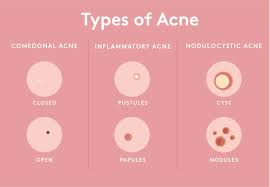 According to the American Academy of Dermatology, between 40 and 50 million Americans suffer from acne each year. While many associate acne with adolescence, acne can occur at any age, with its causes including heredity, hormones, menstruation, food, and emotional stress.
According to the American Academy of Dermatology, between 40 and 50 million Americans suffer from acne each year. While many associate acne with adolescence, acne can occur at any age, with its causes including heredity, hormones, menstruation, food, and emotional stress.
Those with inflammatory acne should exfoliate with caution as the procedure may make conditions worse and consult a dermatologist before treatment. Some anti-acne creams contain drying agents such as benzoyl peroxide (in concentrations of 2.5 – 10%).
The Aging Of Skin
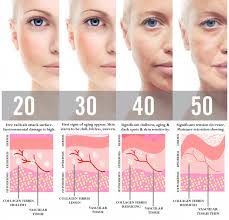 Skin ageing is associated with increased vulnerability. Skin problems including pruritus are common in the elderly but are often inadequately addressed. A literature review of studies that assessed maintenance of skin integrity in the elderly found most to be low levels of evidence but the review concluded that skin-cleansing with synthetic detergents or amphoteric surfactants induced less skin dryness than using soap and water. Moisturizers with humectants helped with skin dryness, and skin barrier occlusive reduced skin injuries.
Skin ageing is associated with increased vulnerability. Skin problems including pruritus are common in the elderly but are often inadequately addressed. A literature review of studies that assessed maintenance of skin integrity in the elderly found most to be low levels of evidence but the review concluded that skin-cleansing with synthetic detergents or amphoteric surfactants induced less skin dryness than using soap and water. Moisturizers with humectants helped with skin dryness, and skin barrier occlusive reduced skin injuries.
I hope that you have really enjoyed this post,
Please Leave All Comments In Comment Box Below ↓
- Sunscreens
- Acne creams
- Anti-aging creams
- Anti-dandruff shampoos

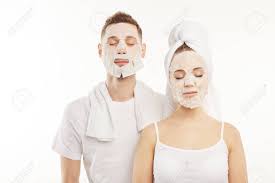












Thank you very much for this article. I have been putting creme on my face since such a young age, that at some point, I could not be bothered and simply stopped a few years ago. Finding the adequate cream can be a bit of a hassle sometimes, but to respect one’s skin is crucial. Take care.
Thank you for taking the time to read and comment on this article. It is my pleasure to bring content of this caliber to the attention of those who are interested.
Thank you again for reading and commenting on this post.
Have A Blessed Day!
Thanks for the wonderful article. I enjoy your article very much
Recently I have been feeling oily and dirty in my face skin. I am worried about it. I have read so many articles about it. But I can say your article is one the best. I am gonna share this article with my friends and family. Best of luck for you and your website. Keep going.
Thanks you
Thank you for taking the time to read and comment on this post. You are most certainly welcome for the wonderful article. Thank you for considering it one of the best, I am forever grateful.
All The Best To You My Friend!